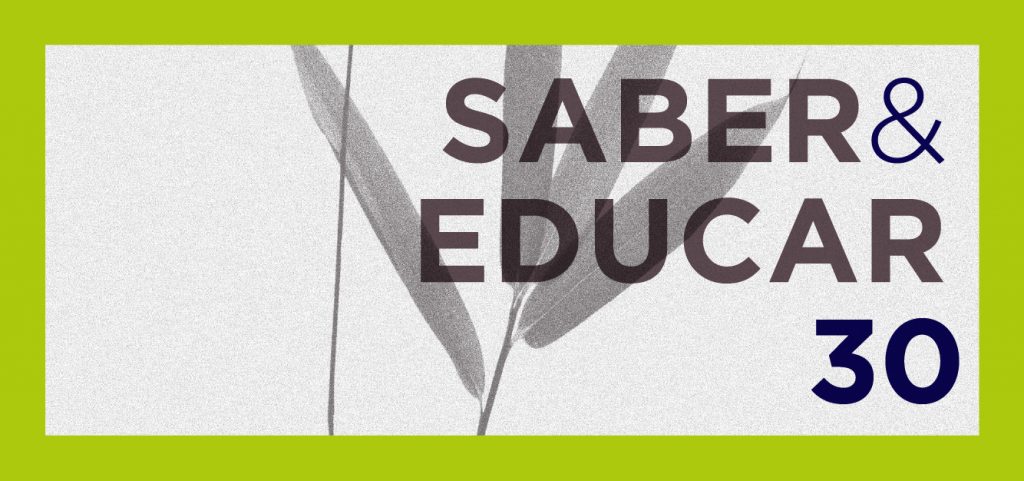
Revista Saber & Educar n.º 30
“O presente do futuro da Infância“
Organizadores/Editors: Paula Pequito, Ana Cristina Pinheiro, Brigite Silva, Clara Craveiro, Daniela Gonçalves, Irene Cortesão, Ivone Neves e Paula Medeiros
Editor/Publisher: ESEPF
Ano/Year: 2021
Idioma/Language: Português e Inglês/ Portuguese and English
Páginas/Pages: 150
E-SSN: 1647-2144
Identificador/Identifier : http://revista.esepf.pt/index.php/sabereducar/issue/view/35/showToc
Resumo: A rede alargada de interações de que o educador é responsável: interação com crianças, famílias, outros profissionais, autoridades locais e comunitárias, exige um compromisso social e ético. Importa, neste âmbito, identificar práticas educacionais, projetos, investigações que (re)equacionam o presente do futuro da Educação de Infância, tendo em conta diversos questionamentos: Que conceções e dilemas na formação de educadores de infância? Que intervenientes/parceiros para a educação de infância? O futuro da educação de infância: que desafios? Que práticas estimulam a participação da criança e a cidadania ativa? Como conceber e implementar práticas e ambientes educativos diferenciadores? Como interpretar a 1.ª infância: cuidar/educar/brincar? Como concretizar a inovação pedagógica e as práticas inclusivas? E o locus da Educação de Infância: que limites? E o desenvolvimento e aprendizagem na Infância: que dinâmicas? (In Nota de Abertura)
Abstract: The wide network of interactions for which the educator is responsible: interaction with children, families, other professionals, local and community authorities, requires a social and ethical commitment. In this context, it is important to identify educational practices, projects, research that (re)equate present and future of Early Childhood Education, taking into account several questions: What are the conceptions and dilemmas in early childhood educators training? Which stakeholders/partners for early childhood education? The future of early childhood education: what challenges? What practices encourage child participation and active citizenship? How to conceive and implement differentiating educational practices and environments? How to interpret early childhood: caring/educating/playing? How to implement pedagogical innovation and inclusive practices? And the locus of Early Childhood Education: what are the limits? And the development and learning in childhood: what dynamics?” (In Opening Note)
